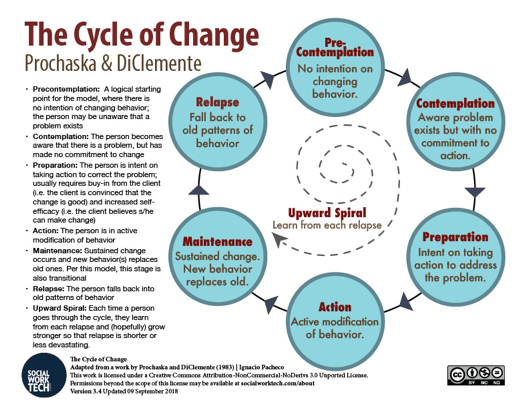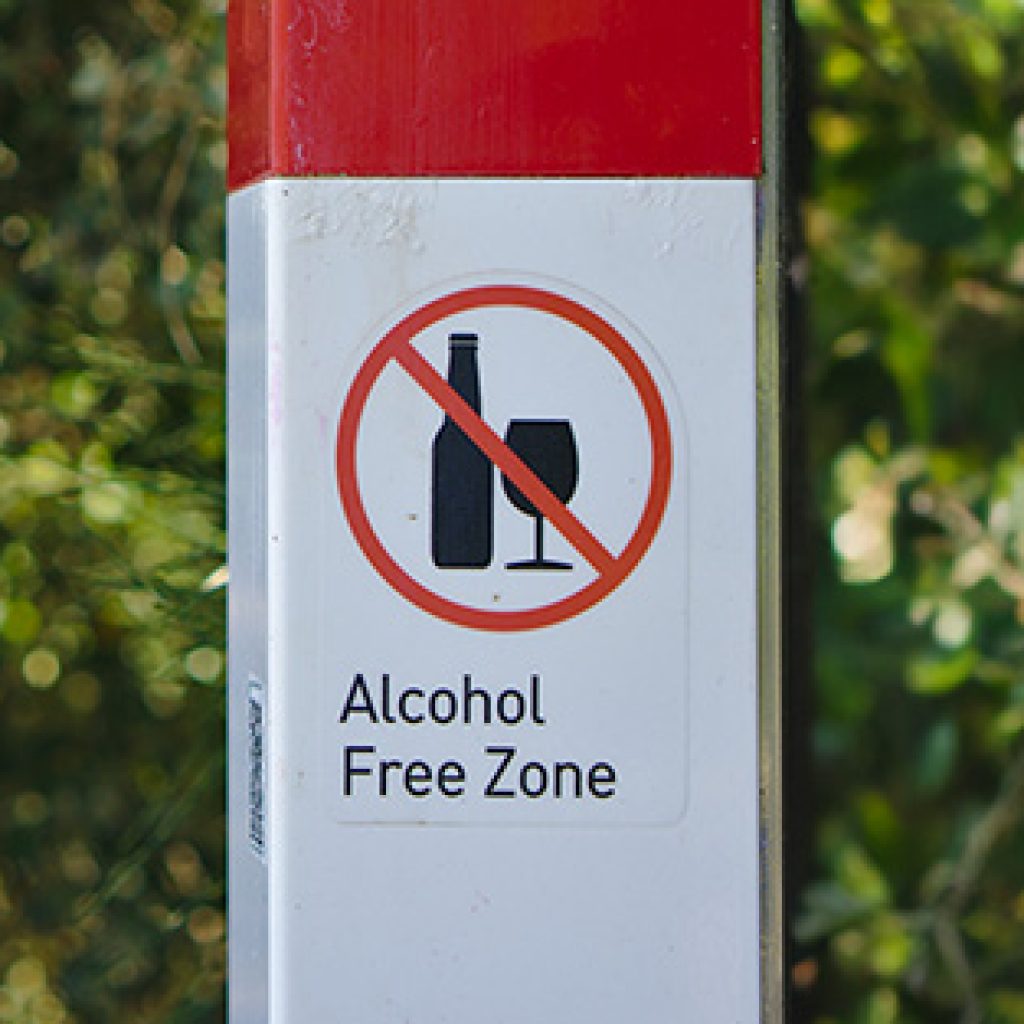UPDATED: Motivational Interviewing: The One Tool Every Behavioral Health Provider Needs
UPDATED: Motivational Interviewing: The One Tool Every Behavioral Health Provider Needs
“Motivational Interviewing is a clinical approach that helps people with mental health and substance use disorders and other chronic conditions such as diabetes, cardiovascular conditions, and asthma make positive behavioral changes to support better health. The approach upholds four principles— expressing empathy and avoiding arguing, developing discrepancy, rolling with resistance, and supporting self-efficacy (client’s belief s/he can successfully make a change).” — SAMHSA-HRSA Center for Integrated Health Solutions
For those not as familiar with this treatment modality as they might like to be, Motivational Interviewing (MI) is a clinical approach that was developed by William R. Miller and Stephen Rollnick in 1983 from experiences in treating people with alcohol use disorder. MI is a method that is useful for helping people become internally motivated to change behaviors when insecurity and ambivalence interfere. While developed originally for those with alcohol use disorder (AUD) and substance use disorders (SUDs), MI has been widely adapted and is used by behavioral health and healthcare providers for a variety of behavioral health disorders and health issues. Miller discovered quite by accident during two studies (Miller & Munoz, 2005; Miller & Baca, 1983) that the clinical style of treatment providers impacted behavioral outcomes and that that counselor empathy led to successful outcomes (Miller, 1983; Miller and BACA, 1983). During subsequent interactions with Stephen Rollnick and other colleagues during a sabbatical in Australia, Miller was questioned about his thinking and processing during a role-play demonstration. The conceptual model and clinical guidelines for MI were derived from the notes he took during that process (Miller & Rose, 2009). Miller and Rollnick co-authored the original MI book, Motivational interviewing: Preparing people to change addictive behavior (1991).
While MI is not invariably effective for everyone or across populations, it pairs well with the Stages of Change model developed by Prochaska and DiClemente (1982, 1983).
MI is also effective in reducing denial, and helps clients conflicted about having problems with substance misuse to tip the scale more toward being motivated to do something about it than to avoid doing anything about it (Miller, 1983). The two main components of MI are “a relational component focused on empathy and the interpersonal spirit of MI, and a technical component involving the differential evocation and reinforcement of client change talk” (Miller & Rose, 2009). The focus of MI is on establishing therapeutic conditions that encourages positive change, such as “accurate empathy.” With a spirit that promotes collaboration between client and counselor, brings forth the client’s own motivation, and honors client autonomy, and specifically training clinicians in MI, clinical practice has met with research for the past 30 years to evolve MI in its current form. Over 200 clinical trials of MI have been published and reviews and meta-analyses support efficacy for a variety of problem behaviors in addition to problem drinking, gambling, smoking, and associated mental disorders, such as management of diabetes, dietary changes, hypertension, chronic mental disorders, and cardiovascular rehabilitation, to name a few. Multiple studies support MI as a method that promotes “change talk” and decreases resistance in clients, which is highly predictive of behavior change (Miller & Rose, 2009)
The four principles of MI are:
- Less emphasis on labeling: Counselors do not have to insist that labels such as “alcoholic” are accepted by the client and can focus on issues that arise due to consumption and on what the client wants to do about them.
- Individual responsibility: The client is treated as an adult taking responsibility for deciding if there is a problem and what to do about it. This fosters a respectful client/counselor partnership without moral judgments or a power differential.
- Internal Attribution: The responsibility for both the condition and the credit for changes made are the clients. Since the clients do not have to admit “helplessness” they can accept responsibility for their own use and are more likely to decide not to use.
- Cognitive Dissonance: One of the goals of MI is to help the client to experience dissonance or a discrepancy between the client’s behaviors and beliefs by deciding to change the behaviors.
MI is a psychotherapeutic method that is based on empirical evidence, is reasonably brief, specific, complements other treatment methods, and can be used for a diverse assortment of problem behaviors. Moreover, MI is a set of specific skills and can be learned by professionals and staff for use in a variety of behavioral health and in healthcare settings (Miller & Rose, 2009).
Many tools and links to additional information and resources are available in the CASAT OnDemand Resources & Downloads section. Also available in the Learning Labs section is an entire Motivational Interviewing Learning Lab with research articles, websites, training opportunities, and tools to download for those wanting to take a “deep dive” into MI. In the Catalyst Blog, are three additional posts about MI: So You Want to be a Motivational Interviewing (MI) Trainer? for those wanting to learn to train others in MI – an excellent way to learn! Another blog post How Can a Professional Become a Mint Trainer? tells you exactly what you need to do to become a “MINTie” courtesy of our guest blogger, Jennifer Hettema, Associate Professor in the Department of Family and Community Medicine (DFCM) at the University of New Mexico. The third MI post is Motivational Interviewing to Activate Change in Ambivalent Clients: Is it Right for You?, which describes the usefulness of MI in a variety of situations, including for different age groups, different ethnicities, and for people who need help to resolve ambivalent feelings and insecurities and find the internal motivation they need to change their behavior.
New! Motivational Interviewing Training Available for Behavioral Health Providers
Behavioral Health providers often have questions such as “What is Motivational Interviewing used for? and How do you use Motivational Interviewing? To answer your motivational interviewing questions and provide and opportunity to learn motivational interviewing techniques, CASAT Learning offers a self-paced online course entitled A Brief Overview of Motivational Interviewing.
After completing this brief overview of Motivational Interviewing, participants will be able to: Define Motivational Interviewing, Gain knowledge about Motivational Interviewing principles and counseling strategies, Define the Stages of Change, and Learn interaction techniques and MI traps to avoid.
For more information on this course, available CEUs, and registration information, visit CASAT Learning.
Motivational Interviewing Training for Peer Recovery Support Specialist and/or Community Health Workers
Are you a Peer Recovery and/or Community Health Worker? CASAT Learning also has a 90-minute online training just for you Motivational Interviewing Changing the Conversation: Peers & Community Health Workers (CHW) on the Frontlines This Online Video course is intended to support and strengthen the conversational skills of behavioral health peer support specialists and community helpers in the use of Motivational Interviewing. Peer specialists and community helpers are on the front lines in providing understanding and support for clients experiencing a variety of mental health and substance use disorders. The session will introduce the basic components of Motivational Interviewing, focus on helpful tools and resources to enhance conversations about change to and work through the difficulty of indecision about change. A brief action planning model will be featured.
Goal: Strengthen the skills of behavioral health peer support specialists and community helpers in the use of Motivational Interviewing
Objectives:
- Outline the basic components of Motivational Interviewing
- Identify strategies to reduce uncertainty to change
- Summarize three helpful tools to engage participants in change conversations
- Apply the use of a brief action plan model to aid planning for outcomes
For more information and to register for this course visit CASAT Learning.
This blog post was originally published August 8, 2019 and has been updated to include new training opportunities and other information.
References
Miller WR. Motivational interviewing with problem drinkers. Behavioural Psychotherapy 1983;11:147–172.
Miller, W. R., & Rose, G. S. (2009). Toward a theory of motivational interviewing. American Psychologist, 64(6), 527-537. doi:10.1037/a0016830
Prochaska, J. O., & DiClemente, C. C. (1982). Transtheoretical therapy: Toward a more integrative model of change. Psychotherapy: Theory, Research & Practice, 19(3), 276-288. doi:10.1037/h0088437
Prochaska, J. O., & DiClemente, C. C. (1983). Stages and processes of self-change of smoking: Toward an integrative model of change. Journal of Consulting and Clinical Psychology, 51(3), 390-395. doi:10.1037/0022-006X.51.3.390
Blog Post Tags:
Related Blog Posts
Related Learning Labs
Related Resources
.
- Buscar Tratamiento de Calidad para Trastornos de uso de Sustancia (Finding Quality Treatment for Substance Use Disorders Spanish Version)
- Finding Quality Treatment for Substance Use Disorders
- Focus On Prevention: Strategies and Programs to Prevent Substance Use
- Monthly Variation in Substance Use Initiation Among Full-Time College Students
- The National Survey on Drug Use and Health (NSDUH) Report: Monthly Variation in Substance Use Initiation Among Adolescents











Right now it sounds like WordPress is the preferred blogging platform available right
now. (from what I’ve read) Is that what you’re using on your blog?
There are many free T-Tapp videos online that you can follow and the dvds come with detailed instructionals from the creator of the program before you move onto the regular excercises.
I have skin that’s really sensitive and oily, so I tend to lean towards natural products. I hope that I can find an organic lotion online with a fresh lavender scent that I can use every day.
so I tend to lean towards natural products. I hope that I can find an organic lotion online with a fresh lavender scent that I can use every day.Anabolic Steroids Shop